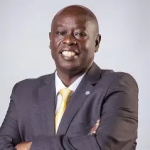Breaking News
 THE RISK OF BUYING OFF-PLAN DEVELOPMENT IN KENYA
THE RISK OF BUYING OFF-PLAN DEVELOPMENT IN KENYA
 Kenya, Remittances From The Diaspora Reached A Record US$5.08 Billion In The Year To June 2025.
Kenya, Remittances From The Diaspora Reached A Record US$5.08 Billion In The Year To June 2025.
 The American government Should Not Traumatize People Who Were Once Taxpayers and Worked Hard While In America.
The American government Should Not Traumatize People Who Were Once Taxpayers and Worked Hard While In America.
 Ruto and His Henchmen Must Stop Diverting Attention from Real Issues.
Ruto and His Henchmen Must Stop Diverting Attention from Real Issues.
 ODM’s Ban On Gachagua In Bondo Is A Dangerous Step Backward For Kenya Democracy.
ODM’s Ban On Gachagua In Bondo Is A Dangerous Step Backward For Kenya Democracy.





